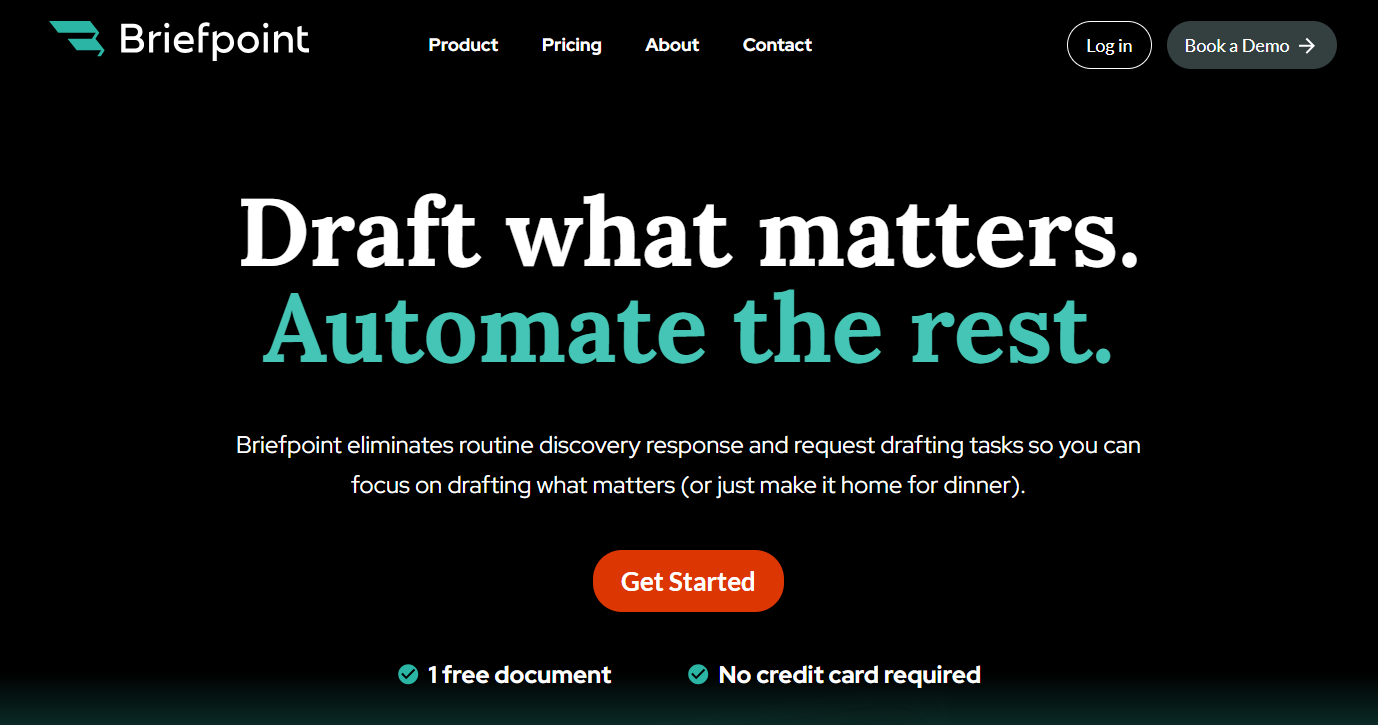How to Respond to Interrogatories, California
How to Respond to Interrogatories, California
In California’s superior court system, responding to interrogatories in an unlimited civil case involves navigating a myriad of procedural rules and best practices.
Each answering party must ensure that the responding party permits the disclosure of all information that is reasonably available, relying on personal knowledge sufficient to provide complete and accurate responses.
This article provides a comprehensive guide to effectively managing interrogatory responses, including understanding deadlines, modifying response times, handling objections, and formatting responses.
It also emphasizes the importance of making a good faith effort to answer each question posed by the requesting party, even when full details may not yet be available.
By addressing the expectations of the asking party and reviewing the relevant provisions of the California Code of Civil Procedure and applicable case law, this guide helps clarify the intricacies involved in responding to interrogatories and supports a more informed, cooperative exchange of information throughout the process.
Interrogatory Obligations
Parties have an obligation to furnish all reasonably available information when responding to interrogatories, as required by Cal. Code Civ. Proc. § 2030.220(a) and (c).
This includes information known by counsel or held by organizational parties, such as officers, employees, and former employees, as established in cases like Scheiding v. Dinwiddie Constr. Co., 69 Cal. App. 4th 64, 76 (1999).
If an interrogatory cannot be answered completely, it must be answered to the extent possible, in accordance with Cal. Code Civ. Proc. § 2030.220(b) and § 2030.240(a).
Drafting Interrogatory Responses
Responses to interrogatories should be formatted like court filings, with the case and court information, and include the name of the responding party, the propounding party, and the set number, as directed by Cal. Code Civ. Proc. § 2030.210(b) and Cal. Rules of Ct., Rule 3.1000(a).
Each response should be numbered, complete, and straightforward. Objections must be stated clearly and specifically, as outlined in Cal. Code Civ. Proc. § 2030.240(b).
Rules for Responding to Interrogatories
When answering an interrogatory, the response should be as complete and straightforward as possible, based on the information reasonably available to the responding party, as mandated by Cal. Code Civ. Proc. § 2030.220(a) and established in cases like Hernandez v. Superior Ct., 112 Cal. App. 4th 285, 294 (2003).
Factually deficient interrogatory responses can shift the burden on summary judgment, as demonstrated in Cornell v. Berkeley Tennis Club, 18 Cal. App. 5th 908, 934 (2017).
Objection to Interrogatories
Valid objections may include compound, conjunctive, or disjunctive interrogatories, as prohibited by Cal. Code Civ. Proc. § 2030.060(f); questions that are not self-contained, as specified in Catanese v. Superior Court, 46 Cal. App. 4th 1159, 1164 (1996); cumulative, duplicative, or unduly burdensome requests, as restricted by Cal. Code Civ. Proc. §§ 2019.030 and 2030.090; irrelevant information, as defined by Cal. Code Civ. Proc. §§ 2017.010, 2019.030, and 2030.010; requests exceeding the interrogatory limit, as established in Cal. Code Civ. Proc. § 2030.030 et seq.; premature contention interrogatories, as cautioned in Judicial Council Form Interrogatories-General (Form DISC-001), Sec. 2(d); and requests seeking privileged or protected information, as detailed in Cal. Code Civ. Proc. §§ 2018.020 et seq. and 2030.240(b), among others.

Client Verification
Interrogatory responses must be signed under oath by the party to whom they are directed and, if objections are included, by the party’s attorney, as required by Cal. Code Civ. Proc. § 2030.250(a) and (c).
If the responding party is a corporation, partnership, association, or governmental agency, an officer or agent of the entity must verify the responses, as stated in Cal. Code Civ. Proc. § 2030.250(b).
Serving the Interrogatories
Responses to interrogatories are served on the parties but not filed with the court unless relevant to a motion or other court hearing, according to Cal. Code Civ. Proc. § 2030.260 and Cal. Rules of Ct., Rule 3.250(a)(8).
They must be served within 30 days of service, along with proof of service, as outlined in Cal. Code Civ. Proc. §§ 1013a, 1013b, and 2030.260(c).
Supplement Your Interrogatories
If a party determines that a prior interrogatory answer is incorrect or incomplete, they may serve an amended or supplemental answer, as allowed by Cal. Code Civ. Proc. § 2030.310(a).
However, parties do not have an ongoing obligation to supplement their interrogatory responses, as highlighted in R & B Auto Ctr., Inc. v. Farmers Grp., Inc., 140 Cal. App. 4th 327, 358 (2006) and Biles v. Exxon Mobil Corp., 124 Cal. App. 4th 1315, 1325 (2004).
Deadline for Responding to Interrogatories
In general, parties must respond to interrogatories within 30 days of service, as mandated by Cal. Code Civ. Proc. § 2030.260(a). However, the 30-day deadline may be extended depending on the method of service, as outlined in Cal. Code Civ. Proc. §§ 1010.6, 1013, and 2016.050.
For electronic or overnight delivery, the extension is two court days. If the interrogatories were served by mail, the extension is five calendar days for in-state mail, ten calendar days for out-of-state mail, and twenty calendar days for international mail.
Asking for More Time
The deadline for responding to interrogatories may be shortened or extended through a court order or a stipulation between the parties, as provided by Cal. Code Civ. Proc. §§ 2030.260(a) and 2030.270.
Parties should generally grant first requests for extensions unless abused or time-sensitive, in line with professional courtesy and to avoid unnecessary requests for judicial intervention. A written stipulation specifying the new deadline is necessary and, unless stated otherwise, does not waive the objections of the responding party, according to Cal. Code Civ. Proc. § 2030.270(b) and (c).
If a stipulation cannot be reached, court approval is required under Cal. Code Civ. Proc. § 2030.060(a).
Failing to Respond on Time
Failing to timely respond to interrogatories may result in waiving any objections or the right to produce documents in lieu of a narrative response, as stated in Cal. Code Civ. Proc. § 2030.290(a).
However, the court may relieve the responding party from this waiver if they can demonstrate that their failure was due to mistake, inadvertence, or excusable neglect, and they have since provided a substantially compliant response, per Cal. Code Civ. Proc. § 2030.290(a)(1) and (2).
Make Discovery Responses Easier With Briefpoint
Effectively responding to interrogatories in California requires adherence to specific procedural rules and a thorough understanding of best practices.
Whether addressing a particular interrogatory or reviewing an entire set, it’s important to provide a sufficient answer that reflects all reasonably available information.

A party should aim to respond immediately when possible, or at the very least, act within the required timeframes to avoid waiving objections or creating unnecessary complications.
By mastering these intricacies and referencing the California Code of Civil Procedure and relevant case law, professionals can manage interrogatory responses more efficiently and avoid costly delays.
Need a faster, more reliable way to handle your interrogatories? Use Briefpoint to draft, organize, and respond with confidence. Book your discovery call today!
FAQS About How to Respond to Interrogatories in California
How to respond to interrogatories in California?
To respond, the answering party must provide written answers under oath and serve them on the party propounding the interrogatories. Each answer must be labeled with the same identifying number as the corresponding interrogatory, and the response must include all information available through the answering party, their counsel, and any other natural persons under their control. The responses should be in writing, verified, and delivered within 30 days unless an extension applies.
What are acceptable responses to interrogatories?
Acceptable responses include a complete and straightforward answer, a valid objection, or the party’s option to produce writings in place of a narrative response if the information can be derived from documents. Each answer must be given with sufficient detail to fully address the corresponding interrogatory. If the answer refers to others’ knowledge, it must name the other natural persons involved and describe their relationship to the case.
What are the rules for interrogatories in California?
The California Code of Civil Procedure outlines the rules for interrogatories. Responses must be made under oath and separately for each identifying number, with objections stated clearly. Parties can only serve a limited number of specially prepared interrogatories unless granted permission otherwise. All responses must be served on the other party and not filed with the court unless used in a motion or hearing.
What if someone doesn’t answer interrogatories?
If a party fails to answer by the deadline, they may waive the right to object or produce writings instead of a narrative. The other party can file a motion to compel responses, and courts may impose sanctions. However, the court may relieve the answering party from these consequences if they later respond with sufficient detail and show that the failure was due to mistake, inadvertence, or excusable neglect.
Can a party object to every interrogatory?
While objections are allowed, they must be made in good faith and must clearly specify the grounds. Blanket objections or refusing to answer multiple questions without explanation are not acceptable. If objections are used, they must still follow the format rules, including matching the same identifying number and referencing the corresponding interrogatory.
The information provided on this website does not, and is not intended to, constitute legal advice; instead, all information, content, and materials available on this site are for general informational purposes only. Information on this website may not constitute the most up-to-date legal or other information.
This website contains links to other third-party websites. Such links are only for the convenience of the reader, user or browser. Readers of this website should contact their attorney to obtain advice with respect to any particular legal matter. No reader, user, or browser of this site should act or refrain from acting on the basis of information on this site without first seeking legal advice from counsel in the relevant jurisdiction. Only your individual attorney can provide assurances that the information contained herein – and your interpretation of it – is applicable or appropriate to your particular situation. Use of, and access to, this website or any of the links or resources contained within the site do not create an attorney-client relationship between the reader, user, or browser and website authors, contributors, contributing law firms, or committee members and their respective employers.